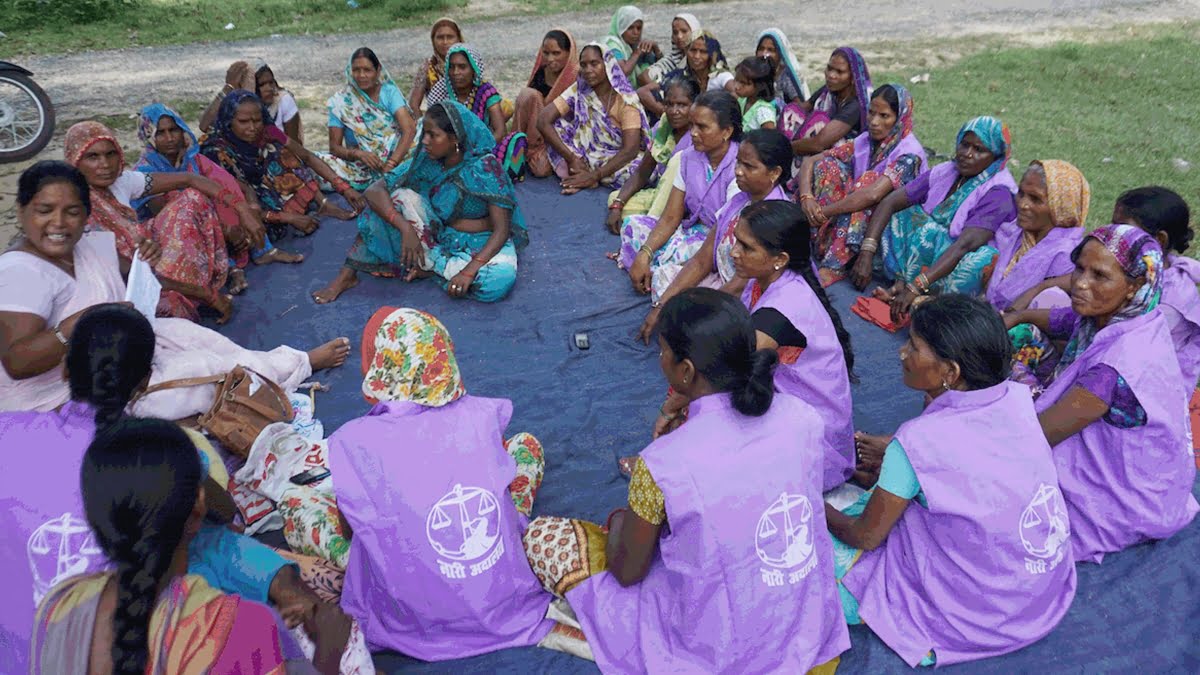July 13, 2023
Nari Adalat: Gender Justice at the Grassroots Level

Source: The Hindu
Introduction:
- The government is embarking on a groundbreaking initiative called “Nari Adalat,” which aims to establish women-only courts at the village level.
- These courts will serve as an alternative dispute resolution forum, addressing issues such as domestic violence, property rights, and patriarchal norms.
- The pilot project will commence in 50 villages in Assam and Jammu and Kashmir, with plans for nationwide implementation in the near future.
Structure and Functioning:
- Each Nari Adalat will comprise 7-9 members, including elected members of the gram panchayat and women with significant social standing, such as teachers, doctors, and social workers.
- The objectives of these courts are to address individual cases, raise awareness about social schemes and legal rights, collect feedback, and resolve cases falling within their jurisdiction.
- Nari Adalat will provide a range of services, including alternate dispute resolution, grievance redressal, counseling, evidence-based decision making, negotiation, mediation, and reconciliation, thereby ensuring accessible and affordable justice.
Implementation and Collaboration:
- The Ministry of Women and Child Development, under the Sambal sub-scheme of Mission Shakti, will oversee the implementation of the Nari Adalat scheme.
- Collaboration efforts between the Ministry of Panchayati Raj, the Ministry of Rural Development, and the Ministry of Electronics and Information Technology’s Common Service Centers will be crucial in the successful execution of this initiative.
- Standard Operating Procedures have been prepared for all states to ensure uniformity and effective functioning of the women-only courts.
Inception of the Idea:
- The Nari Adalat initiative draws inspiration from the Parivarik Mahila Lok Adalats previously operated by the National Commission for Women (NCW).
- These courts addressed family affairs, matrimonial disputes, succession, and other issues.
- Although the NCW-assisted Parivarik Mahila Lok Adalats were discontinued in 2014-15, they provided valuable insights and experiences that contributed to the development of the Nari Adalat concept.
The Need for Such a Scheme:
- Women-only courts address the persisting gender bias in traditional court systems, providing a fair and non-discriminatory environment for women’s cases.
- By breaking down cultural and social barriers that hinder women from seeking justice, these courts create a culturally sensitive space where women can freely participate.
- Furthermore, women-only courts empower women to assert their rights, challenge patriarchal norms, and access justice independently.
- They focus on women’s unique issues, including domestic violence, property rights, and gender-based discrimination, while also improving access to justice for women facing geographical and logistical challenges.
The Conclusion:
- The establishment of women-only courts at the village level through the Nari Adalat initiative reflects the government’s unwavering commitment to empower women and promote gender justice.
- By providing a platform for alternate dispute resolution, these courts offer women a fair and accessible path to justice. Through their functioning,
- Nari Adalats will set legal precedents, raise awareness about women’s rights, and contribute to positive societal change.
- The government’s visionary approach ensures that women’s voices are heard, their rights protected, and their empowerment fostered.
Mains Exam Practice Question:
Q.1 Discuss the significance of the Nari Adalat initiative in addressing gender-based discrimination and promoting women’s empowerment at the grassroots level.
Daily Gist : The Hindu/Indian Express : 30 Jan 2025
January 30, 2025
Gist of editorial : the Hindu/ Indian Express/20 Jan 2025
January 20, 2025
Daily the Hindu/ Indian Express Editorial Gist: 14 Jan 2025
January 14, 2025
